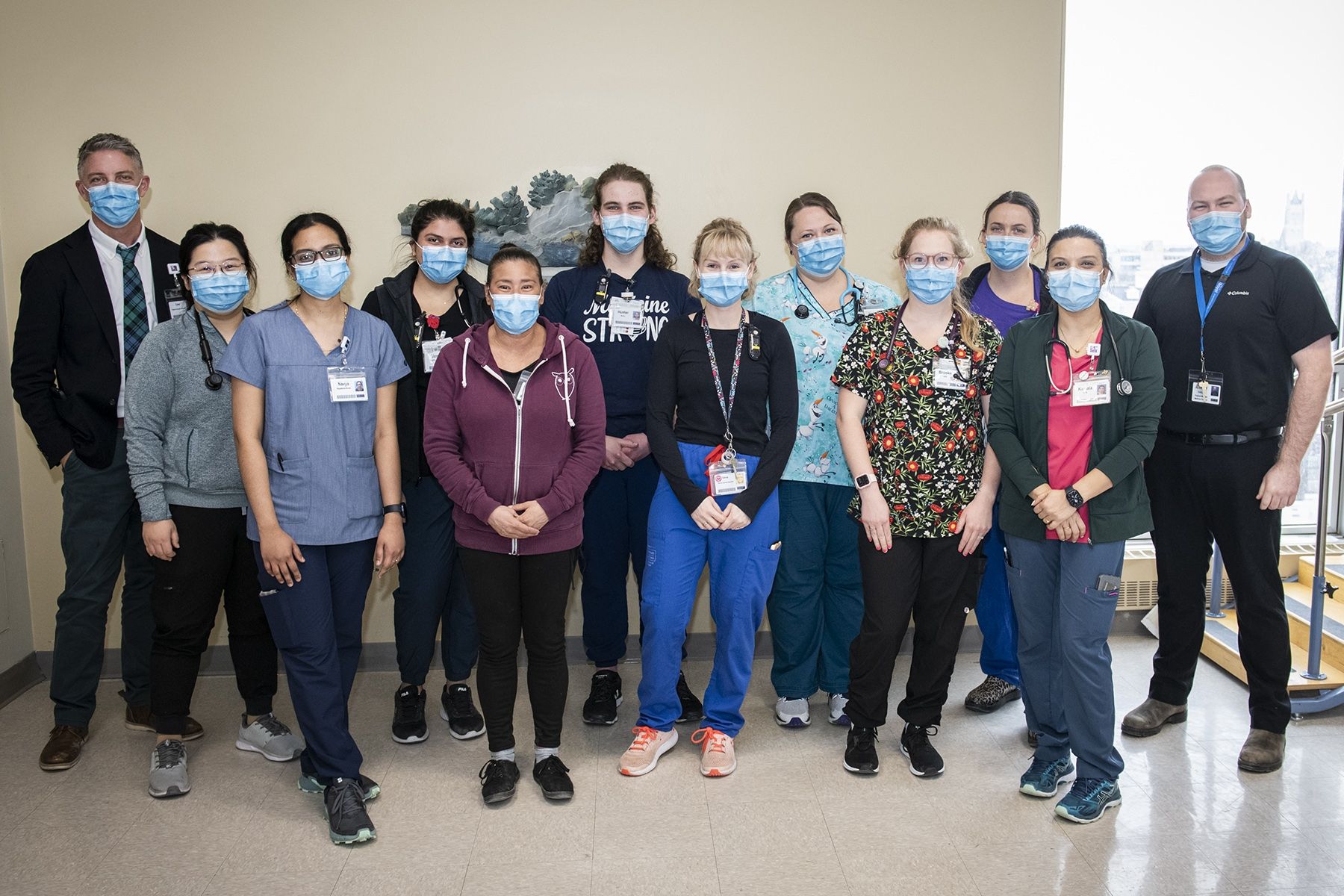
As the largest acute care program at Kingston Health Sciences Centre (KHSC), the Medicine units that make up the department have the ability to improve the health outcomes of many patients.
Before the Medicine program embarked on a quality improvement initiative last summer to reduce the number of patients who develop pressure injuries, also known as bedsores, while on a Medicine unit, pressure-injury audits were done quarterly and prevalence was around nine per cent.
Audits are now done twice a month and prevalence is down to 3.9 per cent. The benchmark for acute care facilities is 3.1 per cent.
“This result demonstrates that, despite the staffing challenges our care teams face, their dedication makes it possible for us to still take the time to improve the care we provide for patients,” says Tyler Hands, KHSC’s operational director of the Medicine program.
For most patients, skin assessments are completed when they are admitted to a Medicine unit. For those with pressure injuries, treatments and further assessments are documented nearly 100 per cent of the time in the files care teams use to monitor and deliver care.
“The units are very busy, so one of our keys to success has been making the audit process easy,” says Hands. “Managers have a simple way to regularly collect and input pressure injury information from the units, which allows them to respond in a timely manner to any trends that need addressing.”
The Connell 10 unit has seen the biggest reduction in bedsores, which are injuries to the skin and tissue that come from lying in one position for too long, and range from mild reddening of the skin to severe tissue damage that can extend into the muscle and bone. The majority of them are avoidable.
In July, the unit recorded 12 injuries and since then numbers have been below five, with the lowest, one injury, recorded in November.
“Having consistent unit-specific information is quite impactful; it gives us the ability to provide real-time follow-up, making sure strategies are in place to prevent or manage hospital-acquired pressure injuries,” says Colton Halligan, Connell 10’s program manager. “The quicker we can identify high-risk individuals and people with these injuries, the sooner we can help them.
“Our results quite simply are a testament to those out on the floor, taking care of patients, day in and day out. Connell 10 and other units are filled with highly competent, kind and compassionate individuals from all professions who lay the foundation to ensure we provide excellent patient care.”



